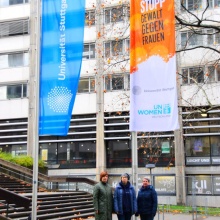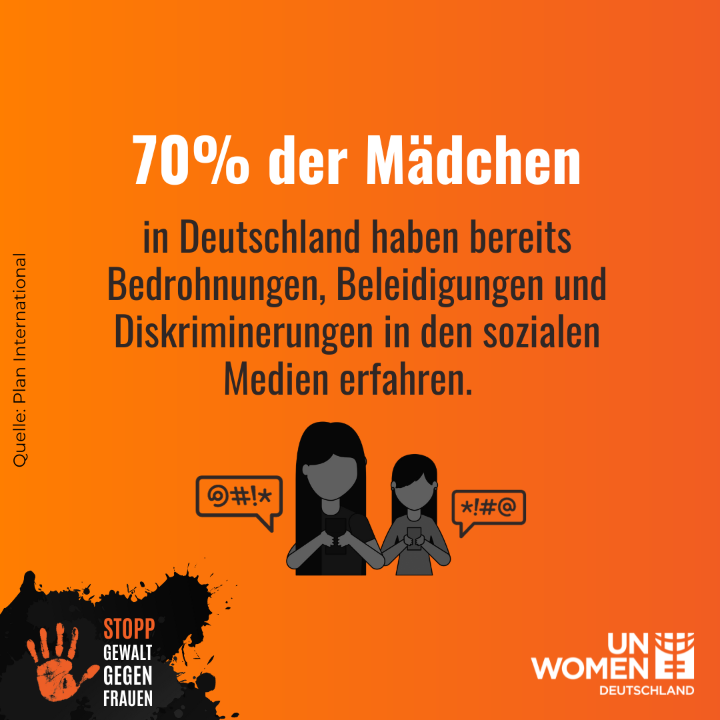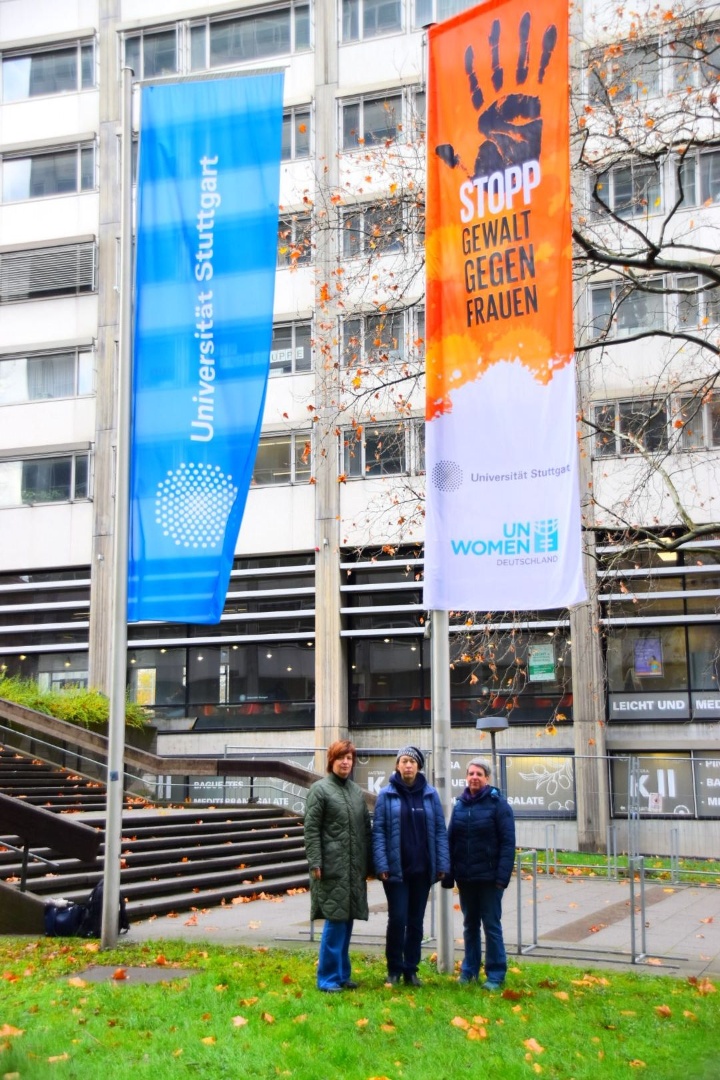A UN campaign flag for "Orange the World" was raised on November 24, 2023, on the University of Stuttgart’s campuses in Vaihingen and in the city center. The orange color symbolizes a future without violence against women and draws attention to the fact that violence against women is unfortunately still an everyday occurrence.
In the university context, women, people who identify as queer, and people with disabilities in particular are not sufficiently protected from sexual assault. In the study Gender-based violence and its consequences in European Academia conducted by GESIS - Leibniz Institute for the Social Sciences for UniSAFE Ending Gender-Based Violence at 46 universities and research institutions across 15 EU countries, almost a third of the students and staff surveyed stated that they had experienced sexual harassment at university at least once.
The effects of this are manifold: Employees state that they are less productive at work, are dissatisfied with their working environment and their work and increasingly consider leaving academia. Students report missing courses, lower learning performance, more distance to their fellow students and dissatisfaction with their studies.
In the university context, women, people who identify as queer, and people with disabilities in particular are not sufficiently protected from sexual assault. In the study Gender-based violence and its consequences in European Academia conducted by GESIS - Leibniz Institute for the Social Sciences for UniSAFE Ending Gender-Based Violence at 46 universities and research institutions across 15 EU countries, almost a third of the students and staff surveyed stated that they had experienced sexual harassment at university at least once.
The effects of this are manifold: Employees state that they are less productive at work, are dissatisfied with their working environment and their work and increasingly consider leaving academia. Students report missing courses, lower learning performance, more distance to their fellow students and dissatisfaction with their studies.
Even in public, psychological, physical, and sexualized violence is part of everyday life for many people. Almost all respondents to a recent Saxon "dark field study on the victimization of women" have experienced intrusive stares, whistling or having comments shouted after them. Sexual innuendo, obscene jokes, gestures, or comments are also part of the experiences of 94% of respondents. Half of all respondents have experienced someone trying to force them into sexual acts or sexual intercourse once or several times.
These behaviors continue in the digital world. Forms of online violence range from hate comments and threats of violence to unwanted sexually explicit messages and images (e.g. "dick pics") and cyber stalking.
A fear of this (potential) violence leads many people to avoid certain places, situations, or online platforms and to develop avoidance strategies to attract less attention. Digital and "analog" violence can lead to women, girls and queer people withdrawing from public spaces and their freedom being restricted.
To ensure that everyone can participate in public life on an equal footing, it is important that openness, tolerance, respect, and fairness form the basis of cooperation in everyday university life. Accordingly, the University of Stuttgart has anchored diversity in its mission statement and is a signatory of the Diversity Charter and the declaration "Together against sexism and sexual harassment". It also supports the joint resolution of the universities in Baden-Württemberg against sexual discrimination, sexual harassment and other violence.




